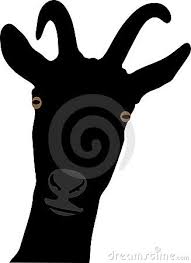I think this will be my final:
Familiars:

The magic user gains a familiar; a small toad, snake, or cat is common. The familiar can also take the form of a token such as a broach, ring, or pendant; it can make the transformation once per day per level. The familiar is the magic user 's spy, and with total concentration (no movement, fighting, casting, etc) the magic user can see through the eyes of her familiar. This vision is dreamlike and not always accurate.
In the event that the familiar dies, the MU immediately knows how it died, regardless of distance. The MU receives a vision of the familiar's last moments (5 rounds or so), as seen through the senses of the familiar. This vision takes no time to receive, but is deeply shocking to the MU, and very likely to interrupt ANYTHING (save vs, paralyze at –6) he is doing, as will any significant (>25% HP) wound. The destruction of such a deep magical bond leaves a raw wound on the MU's connection to the arcane, effectively giving him a penalty on saves versus Magic and Magical Devices, roll 1d10 for penalty. The MU also loses 1/3rd of her HP’s rounded up; these hit points cannot be regained except through long rest.
If the familiar is killed, the magic user loses all of the bonuses of the familiar until the next full moon, when a new familiar can be attached to her.
The familiar has HP equal to half of its owners. AC will equal 14 + casters level.
The familiar can attack once per day per level, it hits automatically for 1 point and stuns the opponent for 1 round unless a ST vs. paralyze is made. The familiar is stealthy, it gets 2 dice + 1 per level to remain unseen.
Spell like powers: At second level and every even level thereafter the familiar may develop a spell like power. These powers are each useable once per day at the will of the familiar. The owner may request that the familiar use an enchantment, this is treated as a command (make reaction check to see how closely the familiar follows instructions). The familiar is not sentient while in totem form, it must therefore be in animal form to use spell like powers. As long as the totem is on the person of the magic user then the conjurer gets +1 hp per level.
The only caveat is that no one must ever see the familiar use magic of any sort, including transformation. If someone does witness the animal performing acts supernatural then the magic-user must kill that person within 24 hours, or the familiar will attack the magic-user. The familiar will attack as if it has HD equal to the MU and will do 1d4 damage per round until it or the MU are dead.
Spell like powers: 1. Unseen servant 2.Audible Glamour 3.Knock 4. Locate object 5. Hold portal 6. No power but animal develops new personality quirk. 7. Polymorph into small bird (1 turn / level) 8. Limited charm person (this will often be used to get food. Only available to MU on a d6 roll of 4 and up. And the familiar will only maintain it for 10 minutes per level.) 9. Detect magic 10. cure light wounds 11. Develops extreme dislike for one of the party members. Presents caster with gemstone (d6 + level x 500 GP) in value. Hated party member loses this amount. 12. Roll twice more but familiars diet now costs (level x 10 gp/ day)
The familiar is not sentient while in totem form, it must therefore be in animal form to use spell like powers. As long as the totem is on the person of the magic user then the conjurer gets +1 hp per level.
Although its owner usually plays the familiar it is an NPC with its own quirks and personality that the DM may play at any time. It is smart for an animal, but not un-naturally so. The owner can communicate telepathically with the familiar as she can with all animals. Single word commands issued once per minute or so, a smart animal will understand a verb followed by a noun. Make a reaction check to gauge how closely the animal’s actions match the Magic-users intentions.

